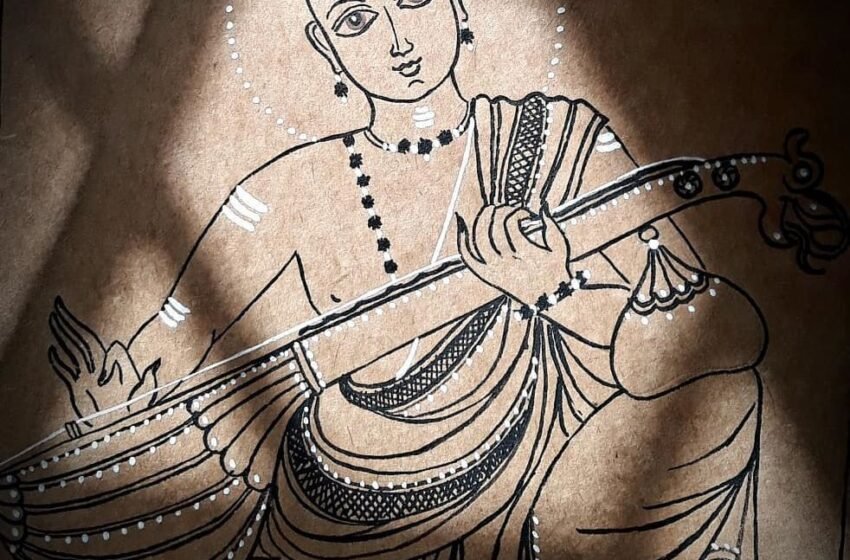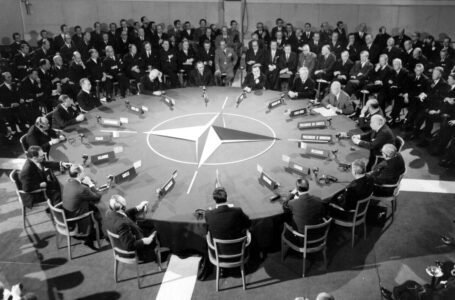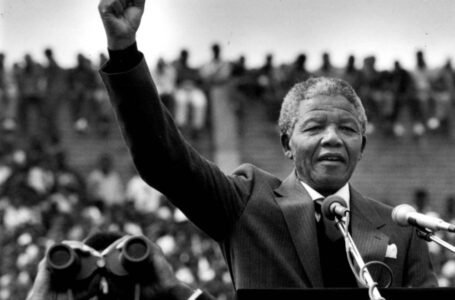“Exploring the Repertoire: A Journey Through the Indian Classics”

A repertoire is a collection of pieces, songs or works that a musician or group can perform. The repertoire is a crucial aspect of any musician’s career, as it is the foundation upon which they build their musical skills, style, and identity.
This blog will delve deep into the repertoire, exploring its many facets and vital role in music-making. We will cover a wide range of genres, including classical, jazz, pop, rock, and many more, to comprehensively understand how repertoire shapes and influences the music we love.

We will also share tips, insights, and resources to help musicians expand their repertoire, hone their skills, and create their unique musical identities. Whether you’re a beginner or an experienced musician, there is always something new to learn and discover when it comes to repertoire.
Join us on this exciting journey as we explore the world of music repertoire and uncover the secrets behind the music we all love.
ORIGIN OF REPERTOIRE
These are just a few of the many great leaders of repertoire in India who have contributed to the development and evolution of the country’s rich musical traditions. Each has left a lasting legacy that continues to inspire and influence musicians and music lovers around the world today.

Over the centuries, Indian music has been influenced by a wide range of cultural, social, and religious factors, including Hinduism, Islam, Buddhism, and Jainism. These influences can be seen in the diverse range of musical genres and styles that exist within the Indian repertoire, from classical and devotional music to folk and popular music.
One of the most important developments in Indian music repertoire was the emergence of the classical music tradition, which is based on a system of ragas and talas, or melodic modes and rhythmic cycles. This tradition was developed in the courts of northern India during the medieval period and was further refined and expanded during the Mughal era.

Some of the most famous and influential composers in the Indian classical music repertoire include Tansen, Mian Tansen, and Amir Khusro. These composers helped to develop and popularize the ragas and talas that continue to form the backbone of the classical music repertoire today.
In addition to classical music, India has a rich tradition of devotional music, including bhajans and kirtans, which are devotional songs that are often sung in religious ceremonies and festivals. Indian folk music is also an important part of the repertoire, reflecting the country’s diverse regional and cultural traditions.

Overall, the history of Indian music repertoire is a fascinating and complex story that reflects the diverse cultural and social influences that have shaped the country’s musical traditions over the centuries. From classical and devotional music to folk and popular music, the Indian repertoire continues to evolve and adapt, reflecting the changing tastes and interests of musicians and audiences alike.
LEADERS OF REPERTOIRE
There have been many great leaders of repertoire in India over the centuries, each contributing to the development and evolution of the country’s rich musical traditions. Some of the most important and influential leaders of repertoire in India include:

- Tansen – Tansen was a legendary musician and composer who lived during the reign of Emperor Akbar in the 16th century. He is considered one of the greatest musicians in Indian history and is credited with popularizing the ragas and talas that form the basis of classical Indian music.
- Swami Haridas – Swami Haridas was a 16th-century saint and musician who is considered one of the founding fathers of classical Indian music. He was a master of the dhrupad style of singing and is credited with composing many famous compositions that are still performed today.
- Tyagaraja – Tyagaraja was a 19th-century composer and musician who is considered one of the greatest exponents of Carnatic music, a style of classical Indian music that originated in South India. He composed hundreds of kritis, or devotional songs, that are still widely performed today.
- Amir Khusro – Amir Khusro was a 13th-century musician and poet who is credited with creating many of the foundational elements of Indian classical music. He is also credited with inventing the sitar, a popular stringed instrument used in classical and folk music.
- A.R. Rahman – A.R. Rahman is a contemporary composer and musician who has achieved worldwide fame for his innovative fusions of Indian and Western musical styles. He has won numerous awards for his work in film music and is considered one of the most influential composers of his generation.
These are just a few of the many great leaders of repertoire in India who have contributed to the development and evolution of the country’s rich musical traditions. Each has left a lasting legacy that continues to inspire and influence musicians and music lovers around the world today.

TYPES OF REPERTOIRE
There are several types of repertoire in India, each with its own unique characteristics and traditions. Some of the most important types of Indian repertoire include:
- Classical music – Indian classical music is based on a system of ragas and talas, or melodic modes and rhythmic cycles. It is a complex and sophisticated form of music that has been refined over centuries, and is characterized by improvisation and ornamentation.
- Devotional music – Devotional music in India includes bhajans and kirtans, which are devotional songs that are often sung in religious ceremonies and festivals. These songs are typically accompanied by traditional instruments like the harmonium, tabla, and dholak.
- Folk music – Indian folk music is a diverse and rich tradition that reflects the regional and cultural diversity of the country. There are many different types of folk music in India, including Baul, Bihu, Ghazal, Qawwali, and Sufi music. These styles are often accompanied by traditional instruments like the dhol, sarangi, and shehnai.
- Bollywood music – Bollywood music is a popular form of Indian music that is characterized by catchy melodies, upbeat rhythms, and lively vocals. It is often used in Indian films and has become a global phenomenon in recent years.
- Fusion music – Fusion music in India combines elements of different musical traditions and genres, creating new and innovative forms of music. This can include fusions of classical and jazz music, or of Indian and Western pop music.
Overall, the diverse range of repertoire in India reflects the country’s rich cultural heritage and its continued evolution and adaptation to changing tastes and influences. Each type of repertoire has its own unique characteristics and traditions, and together they form a rich and vibrant tapestry of Indian music.

FEATURES OF REPERTOIRE
The repertoire in India has several distinctive features that make it unique and fascinating. Some of the key features of Indian repertoire include.
- Rich cultural heritage – Indian repertoire has a long and rich history that reflects the country’s diverse cultural heritage. From classical and devotional music to folk and popular music, Indian repertoire encompasses a wide range of musical traditions and styles.
- Emphasis on improvisation – Indian repertoire is characterized by a strong emphasis on improvisation, with musicians often using their creativity and skill to add their own personal touches to traditional melodies and rhythms.
- Use of traditional instruments – Indian repertoire often incorporates traditional instruments like the sitar, tabla, sarangi, and shehnai, which have been used in Indian music for centuries.
- Complex rhythms and melodies – Indian repertoire is known for its complex rhythms and melodies, which are often based on intricate patterns of beats and notes. This complexity is a result of the use of ragas and talas in classical music, which provide a framework for improvisation and expression.
- Spiritual and emotional depth – Indian repertoire often has a spiritual or emotional depth that reflects the country’s rich cultural and religious traditions. Whether it is the devotional music of the bhajans and kirtans, or the classical music of the ragas, Indian repertoire has the ability to move and inspire listeners.
- Innovation and fusion – Indian repertoire is constantly evolving and adapting, with musicians and composers exploring new forms of fusion and innovation. This can include fusions of classical and jazz music, or of Indian and Western pop music.
Overall, the repertoire in India is a rich and vibrant musical landscape that reflects the country’s diverse cultural heritage and its continued evolution and adaptation to changing tastes and influences. Its unique features make it an important and fascinating part of the global musical tradition.

FAMOUS ARTIST OF REPERTOIRE
India has a rich tradition of music, and there are many famous artists who have contributed to the growth and development of repertoire in India. Some of the most famous artists of repertoire in India are:
- Pandit Ravi Shankar – He was an Indian musician and composer who is considered one of the greatest sitar players of all time. He played a pivotal role in introducing Indian classical music to the West and collaborated with several Western musicians like George Harrison and Philip Glass.
- Ustad Zakir Hussain – He is a world-renowned tabla player who has performed with several notable musicians and orchestras, including the Grateful Dead and the London Symphony Orchestra. He is also a composer and has won several awards for his work.
- Lata Mangeshkar – She is a legendary playback singer who has recorded over 30,000 songs in various languages. Her voice is considered one of the most beautiful and versatile in Indian music, and she has won several awards for her contribution to Indian music.
- Pandit Bhimsen Joshi – He was a renowned classical vocalist who is known for his powerful and emotive voice. He won several awards for his music, including the Bharat Ratna, India’s highest civilian honour.
- A.R. Rahman – He is a composer, singer, and songwriter who is known for his innovative and experimental music. He has won several awards, including two Academy Awards, two Grammy Awards, and a BAFTA Award.
These artists have made significant contributions to the growth and development of Indian repertoire, and have inspired generations of musicians and music lovers.

CURRENT SCENARIO
The current scenario of repertoire in India is a mix of traditional and modern styles of music. While classical and folk music continue to be popular, there has been a rise in the popularity of fusion and experimental music in recent years. Indian music has also gained a global audience, with many Indian artists performing in international music festivals and collaborating with musicians from around the world.
The Indian music industry has seen significant growth in recent years, with the rise of music streaming platforms and the increasing popularity of independent artists. There has been a surge in the number of music festivals and concerts being organized across the country, providing a platform for both established and emerging artists to showcase their talent.
The Indian government has also recognized the importance of music and has taken several initiatives to support and promote the growth of the music industry. The Ministry of Culture has set up several institutions to promote Indian music, including the Sangeet Natak Akademi, the National School of Drama, and the National Institute of Music and Fine Arts.
Overall, the current scenario of repertoire in India is one of growth and innovation, with a mix of traditional and modern styles of music coexisting and evolving together.
 CONCLUSION
CONCLUSION
In conclusion, repertoire in India has a rich history and has evolved over the centuries to become a vibrant and diverse art form. The music has been shaped by the contributions of several great artists and continues to be an integral part of Indian culture.
The current scenario of repertoire in India is a mix of traditional and modern styles of music, with a growing appreciation for fusion and experimental music. The rise of music streaming platforms and independent artists has led to a surge in the popularity of Indian music, both within the country and globally.
The Indian government has recognized the importance of music and has taken several initiatives to promote the music industry’s growth. This, coupled with the creativity and talent of Indian musicians, promises a bright future for repertoire in India.


